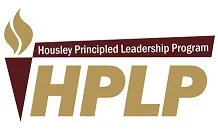Reliability
The students in this spring’s Housley Principled Leadership Program are an amazing group. Spending four hours with them each Friday is invigorating and it renews my sense of purpose heading into the weekend. We are off for a couple of weeks for spring break (Remember those? Maybe not.)
We covered a lot of ground in our recent “Back to Basics” session of the program. (See pics from the session here.) My favorite topic is always the trust equation from Maister and Green’s The Trusted Advisor. The simple and not perfectly mathematical formula postulates that your ability to engender trust is equal to your credibility plus reliability plus intimacy divided by your self-orientation. Thus, we are more likely to trust someone that knows their stuff, does what they say they are going to do, is genuinely interested in knowing us as a person, and behaves in a selfless fashion. We are also much more likely to enjoy their company.
Stereotyping individuals that have a single weak variable is enlightening. The person with low credibility is a blowhard. The unreliable individual is a flake. Score low on the intimacy scale and you will come across as cold as a robot. Score high on all these things, but make it apparent that it is all about you and you may be a politician. We all know people that fall into one of these buckets and we probably don’t trust them much. This formula works in both commercial and personal contexts.
Of all the factors that affect trust the one that is the easiest to master is reliability. It doesn’t take years of education or a personality transplant to start following through on your commitments. In my experience, it is also the easiest way to differentiate yourself from the generally unreliable masses. All of us would benefit from periodically checking ourselves against the trust equation and identifying our weak variable. There is no excuse for letting poor reliability get in the way of building trust.




